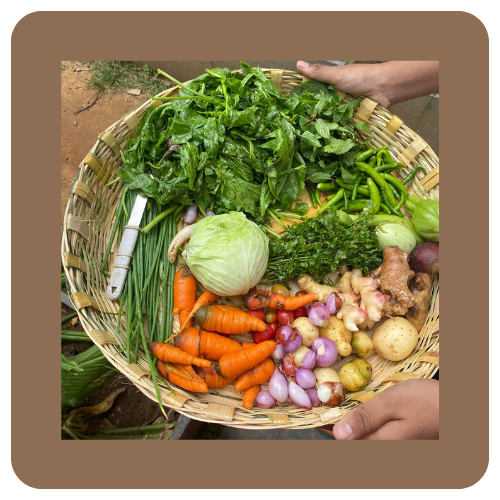Practical Tips on Sustainable Eating for the Urban Household

As a country with a rapidly growing population and an expanding middle class, the demand for food resources is escalating. Embracing sustainable eating practices is not merely a choice but a necessity to ensure food security and mitigate the strain on natural resources. By shifting towards locally sourced, seasonal, and organic foods, Indians can reduce their carbon footprint, alleviate pressure on water sources, and promote soil health.
The health benefits of sustainable eating are equally significant, with a focus on plant-based diets associated with reduced risk of chronic diseases. This transition also fosters a greater connection to traditional foods and agricultural practices, ensuring their preservation for generations to come.
Transitioning to sustainable eating doesn’t have to be overwhelming. Here are some simple steps that can help us embark on this journey:
1. Get to know your food better: Understand the source of your food by reading labels, learning about local produce, and engaging with farmers and food producers. By seeking out locally produced foods, consumers can reduce the environmental impact associated with long transportation distances and support regional economies. Did you know about a measuring unit called ‘Food miles’ measured in tonnes-kilometres to track the distance food travels. Global food miles are responsible for 20% of the world’s carbon-dioxide emission. (1). By eating locally grown and sourced food, one can reduce the unnecessary emissions of these greenhouse gases.
2. Eat what’s in season for healthy reason: Embracing seasonal eating not only ensures fresher and more nutrient-rich meals but also aligns with the natural rhythms of the environment. This approach also encourages a greater appreciation for the cultural diversity and culinary heritage of different regions within India. As consumers become more aware of where their food comes from, they are empowered to make informed choices that resonate with both personal well-being and the planet’s health, driving a positive transformation towards a more sustainable food system.
3. Eat at home instead of eating out: Preparing meals at home allows us to control ingredients, reduce packaging waste, and experiment with traditional recipes that celebrate local flavours. The process of cooking fosters a greater understanding of the food production cycle, inspiring appreciation for the effort that goes into each meal. By choosing homemade over convenience, sustainable eaters in India actively contribute to a more resilient and conscious food system, while relishing the flavours and traditions that define the nation’s rich culinary heritage. Eating at home also prevents wastage of food, something very important in a country where almost 50kg of food per person goes to waste annually. (2) Leftovers can be refrigerated and eaten the next day or repurposed into a new dish. Eating at home also makes way for composting, making it an even more sustainable option.
4. Adopt a vegetarian lifestyle: Livestock production has a significant environmental impact. Emissions by livestock amount for almost 64% of the world’s ammonia emissions. (3) By reducing meat consumption, especially from intensive farming practices, we can reduce greenhouse gas emissions and contribute to more sustainable food systems. Embracing a plant-centric diet addresses the pressing global concerns related to climate change and resource depletion. This shift also eases the strain on water resources and helps mitigate deforestation associated with livestock farming.
Akshayakalpa plays a pivotal role in promoting sustainable eating through its steadfast commitment to ethical farming practices and the production of organic, natural dairy products. By adhering to sustainable farming methods that prioritize the well-being of cows, soil health, and reduced chemical inputs, Akshayakalpa sets a strong example for the agricultural industry. Akshayakalpa’s emphasis on reducing the carbon footprint of food production and embracing local sourcing aligns with the principles of sustainable eating, allowing consumers to enjoy wholesome, nutritious products while minimizing their impact on the planet.
Resources:


















